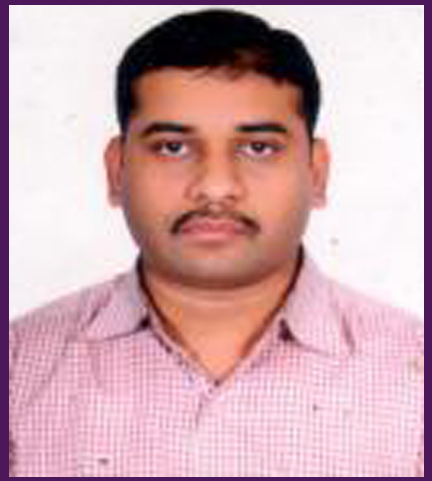Subscribe and Access : 5200+ FREE Videos and 21+ Subjects Like CRT, SoftSkills, JAVA, Hadoop, Microsoft .NET, Testing Tools etc..
Batch
Date: May
4th @9:00AM
Faculty: Mr. Kiran
Duration : 50 to 60 Days
Venue
:
DURGA SOFTWARE SOLUTIONS at Maitrivanam
Plot No : 202,
IInd Floor ,
HUDA Maitrivanam,
Ameerpet, Hyderabad-500038.
Ph.No: +91 - 9246212143, 80 96 96 96 96
Syllabus:

Name: Mr. Kiran
(19+ Yrs of Exp,.. & Real Time Expert)
C - LANGUAGE
1. Introduction to Software and Classification
• System Software
• Types of Operating System
• Types of Programming Languages
• Translators
2. Introduction to C
• Evolution of C
• Flavors of C Compilers working with TC,Vi Editors
• Identifiers and Keywords
• Data types
• Constants
• Symbolic constants
• Variables and Data types
• Escape Sequences
• Format Control Strings
3. Standard Input and Output Functions
• Preliminaries
• Library Functions
• Single Character Input – The getchar Function
• Single Character Output – The Putchar Function
• Entering input Data – The scanf Function
• More about the scanf Function
• Writing Output Data – The Printf Function
• The gets and Puts Function
4. Operators and type Conversions
• Operators
• Precedence and Order of Evaluation
• Arithmetic Operators
• Unary Increment and Decrement Operators
• Unary Operators
• Relational and Logical Operators
• Assignment Operators
• The Conditional Operator/ternary
• Compound Assignment Operators
• Sizeof operator
• Implict type Conversion (coercion)
• Explicit type conversion(casting)
5. Control Structures
• Statements and Blocks
• Selection or Decision Control Statements
• The if statement
• The if else statement
• Nested Conditional Constructs
• The else if statement
• Switch statement
• Repetition or Loop control statements
• The while loop
• The do while loop
• The for loop
• Loop interruption
• The break statement
• The continue statement
• The exit
6. Low Level Programming
• Number Systems
• Bitwise Operators
• Bit Fields
• Applications of Binary Systems
• Working on low level Programs
7. Functions
• Introducing Functions
• Defining a Function
• Accessing a Function
• Function Prototype
• Passing Arguments to a Function
• Function calls
• Return statements
• Recursions
• Nested Functions
• User Defined Header Files
8. Memory Organization
• Understanding Memory Concepts
• Memory Representation
• Storage Classes
• Automatic Variables
• External (Global) Variables
• Static Variables
• Register variables
9. Pointers
• Fundamentals
• Introduction to Memory
• Address and Dereferencing(& and *)operators
• Pointer Declarations
• Pointer Assignment
• Pointer Initialization
• Pointer Arithmetic
• Pointer comparisons
• Pointers and Functions
• Call by Value
• Call by References
• Pointer to Functions
• Pointer to Pointers
• Void Pointers
• Passing Pointer to Functions
• Function returning pointers
• More about Pointer
• Passing Pointer Parameters to Functions
10. Arrays
• Introduction
• Array Declaration
• Array initialization
• Single Dimension Arrays
• Pointer and Arrays (Single Dimension)
• Array of Pointers
• Arrays as Function Arguments
• Pointers and Character Array
• Initialization a 2-Dimensional Arrays
• Three Dimensional Arrays
• Working with Pointers and Multidimensional Arrays
• Dynamic Memory Allocation
• Void * malloc(size)
• Void * calloc(nitems,size)
• Void * realloc(void *block,size)
• Free()
11. Strings
• Introduction to Strings
• Initializing character Arrays
• Difference between char [] and char *
• Standard String Library Functions
• Arrays and Strings
• Pointer and Strings
• Function and Strings
• Two Dimensional Array of Characters
• Examples on Strings
12. Introduction To Macros
• The C Preprocessor
• Introduction to Preprocessor
• Macro Substitution
• Macros with arguments
• Macros with Arguments
• Nesting of macros
• Undefining a Macro
• File Inclusion
• Macro Testing
• Conditional Compilation
13. Structures and Unions
• Declaring a Structure
• Processing a Structure
• Accessing structure members
• Memory Representation of structure
• Typedef
• Array of Structures
• Structures and Pointers
• Passing Structures to Functions
• Structures containing Pointers
• Structures as function arguments
• Self Referential Structures
• Operations on Unions
• Unions and Structures Differences
• Uses of Structures
• Enumerations
14. File Handling
• Introduction
• Unformatted high-level disk I/O functions
• File Formatted I/O Functions
• Opening and Closing File with fopen() function
• Fgetc() and fputc()
• Command Line Arguments (using argc and argv parameters)
• Random Access Files
• Discussion on a Mini Project